





Caloric content of apricots
 Apricot – a woody plant of a sort of Plum of family Pink, yielding small fruits from pale yellow till bright orange color with a large stone. China from where apricots extended worldwide is considered the homeland of this fruit. Today apricots grow preferential in the countries with a temperate climate. Fruit are vitamin-rich, micro and the macrocells necessary for normal functioning of an organism. Apricots which caloric content is extremely low are excellent fruit for weight loss, allowing to eat tasty, to fill balance of useful substances and at the same time effectively to lose weight. How many calories in apricots? How to make the menu of an apricot diet?
Apricot – a woody plant of a sort of Plum of family Pink, yielding small fruits from pale yellow till bright orange color with a large stone. China from where apricots extended worldwide is considered the homeland of this fruit. Today apricots grow preferential in the countries with a temperate climate. Fruit are vitamin-rich, micro and the macrocells necessary for normal functioning of an organism. Apricots which caloric content is extremely low are excellent fruit for weight loss, allowing to eat tasty, to fill balance of useful substances and at the same time effectively to lose weight. How many calories in apricots? How to make the menu of an apricot diet?
Apricots: caloric content, nutriyentny structure, useful properties
Apricots which caloric content reaches 55 calories support a number of the major micro and macrocells that defines useful properties of these fruit. For a long time apricots were used in traditional medicine. Today apricots are applied as alternative means to elimination of locks, an indigestion, anemia (the anemia, is provoked by a lack of iron of an organism), fevers, skin diseases.
Introduction of apricots which caloric content is rather low to a diet will allow to normalize the GIT function, a metabolism, cardiac performance, to improve the general state of health, complexion.
Nutriyentny structure of apricots (caloric content – to 55 calories) in 100 g of a product:
- Proteins – 0,9g;
- Fats – 0,1g;
- Carbohydrates – 10,8g.
Apricots which caloric content fluctuates from 41 to 55 calories depending on the content of sugars contain vitamins:
- Beta carotene – vitamin A, powerful antioxidant, participates in protein synthesis, normalizes a metabolism, interferes with adjournment of fats, slows down processes of aging of an organism;
- Е – the important element participating in reproduction processes, an immunomodulator, antioxidant;
- With – powerful antioxidant, a coenzyme of metabolic processes, participates in processes of transformation of cholesterol into bile acids, immunomodulation;
- B1 – thiamin, promotes the normal growth and development of an organism, recovers cordial function, normalizes activity of nervous and digestive systems;
- B2 – Riboflavinum, one of the major vitamins, a coenzyme of many biochemical reactions in an organism, is applied at anemias, diabetes, cirrhosis, GIT dysfunction;
- B3 – Niacinum, RR, participates in metabolism of fats and carbohydrates, amino acids, purines, reduces concentration of cholesterol, triglycerides in blood, expands small blood vessels (including a brain);
- B9 – folic acid, a necessary element for growth and development of immune and circulatory systems, promotes education and maintenance of viability of new cells (it is especially important in the period of embryonic development).
Apricots which caloric content is extremely low at rich vitamin structure at the regular use contribute to natural normalization of metabolism of fats, a metabolism that gradually leads to normalization of weight. At fresh apricots caloric content is lower, than at the dried-up fruit.
Apricots contain the following macrocells:
- Calcium – the major element for an organism, renders antistressorny effect, brings out of an organism of salt of heavy metals, is a probiotic and antioxidant;
- Potassium – the basic element supporting water and acid-base balance of an organism activates enzymes, normalizes action of the heart, promotes removal of excess liquid from an organism;
- Magnesium – the participant of many biochemical processes of an organism, such, as: synthesis of enzymes, proteins, energy development;
- Phosphorus – an important element, stimulates activity of a brain and cardiovascular system;
- Sodium – the microelement providing passing of nervous impulses, regulating a water balance.
Introduction to a diet of a small amount of apricots which caloric content can be neglected even during a diet provides an organism with the major elements for normal life activity, and also allows to avoid a physical and psychological stress with an insufficient value of food. As we already told above, in the course of observance of a diet it is necessary to consider that at the dried-up apricots caloric content is much higher.
Apricots contain iodine, cobalt, iron, manganese, copper, zinc, fluorine. At low contents in an apricot of calories one fruit provides an organism with standard daily rate of the iron necessary for normal functioning of an organism.
Apricot: calories and principles of weight reduction
At the low level of contents in apricots of calories, fruit are rich with the cellulose and pectins possessing soft laxative action and promoting clarification of an organism. For treatment of chronic locks, normalization of a vermicular movement of intestines to patients recommend to use apricots. Caloric content of this fruit is really low, and considering a metabolic cost of an organism on digestion and assimilation of a portion, the calories which are contained in apricots can be neglected at all.
However apricots do not promote bystry weight loss. The basic principle of bystry weight reduction at an apricot diet consists in laxative effect and clarification of an organism. Fatty deposits are not split for so short term. The regular use of apricots, apricot juice and compotes promotes gradual acceleration of lipidic exchange, burning of fatty deposits.
The effect reached during apricot diets needs to be set by complex change of a diet and diet.
Apricot diet: menu, rules of observance
The apricot diet belongs to the category of bystry monodiets which menu offers apricots as the main ingredient of all dishes. The menu of a diet includes:
- Freshly squeezed apricot juice;
- Salads from apricots;
- Apricot cream soup;
- Water the cleared not gassy;
- Green tea.
Despite the fact that how many calories in apricots, the standard daily rate of fruit of all dishes should not exceed 1,5kg. Also it is possible to enter up to 100 g of dried apricots into a diet. At observance of a diet it is also necessary to remember that at fresh apricots caloric content is much lower, than at the dried-up fruit (to 220 calories in 100 g).
It is necessary to keep to an apricot diet with extra care, in order to avoid diarrhea. Those who did not try a monodiet are recommended to spend one fasting day on apricots, watching reaction of an organism. In the absence of heartburn, diarrhea, dizziness and other reactions of an organism, nutritionists recommend to pass directly to an apricot diet.
Considering how many calories in apricots, the menu of a monodiet can be expanded. For seasoning of salad from apricots it is possible to use honey or to fill in small cut fruit segments with juice with small addition of sugar. Efficiency of a diet on apricots – to 1 kg a day.
Apricots which caloric content is small can be entered into a diet of other diets, using fresh fruit with natural yogurts for the second breakfast, an afternoon snack or as an alternative to a dinner. Use of such cocktail instead of a dinner at a usual diet also promotes effective weight reduction.
Drug for cough Terpinkod is one of leaders of sales, not because of the medicinal properties at all.

Practically each person is familiar with the annoying, pulling, unscrewing pains caused by overcooling of muscles of a back. In некото...
Section: Articles about health
Iodine - one of thirty most important microelements in our organism. The main role of iodine consists in synthesis of thyroid hormones of a thyroid gland - the substances which are responsible for the majority of exchange processes of an organism. It is known that thyroid hormones consist...
Section: Articles about health
The climax, or menopause is the normal process of the termination of genital function of the woman which is followed by serious hormonal changes in an organism. Usually the menopause begins at the age of 50-55 years, but characteristics of this process are very individual. Factors of earlier approach of a climax are irregular sex life, numerous abortions, addictions, existence of endocrine, autoimmune and gynecologic diseases, frequent stresses and excessive hobby of diets...
Section: Articles about health
For many spouses the question of planning of a family is one of the main. The choice problem effect at the same time comes out on top...
Section: Articles about health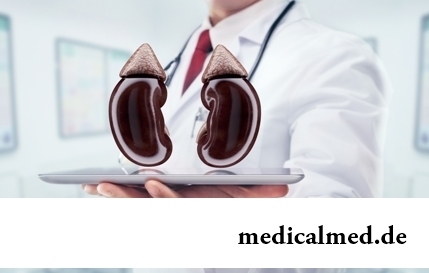
Kidneys perform the most important function of clarification of blood from those products of metabolic processes which cannot be used by an organism for obtaining energy and construction of new cells. With the urine produced by kidneys from a body of the person bulk is removed...
Section: Articles about health
Work of a brain is extremely complex and in many respects is not studied yet. It is confirmed also by the features of thought processes which are shown when the person sleeps. Let's tell about some of them....
Section: Articles about health
Frosty air, fresh wind and easy snowball at most of Russians are associated with cheerfulness, health and cheerful entertainments, on to...
Section: Articles about health
Sometimes it seems that modern society was divided into two camps: representatives of the first are sure that only the woman has to be responsible for contraception, representatives of the second, respectively, are sure that it is destiny of men. Meanwhile Dov has a question of contraception...
Section: Articles about health
The summer of this year in Russia was very ambiguous. Regions suffered from a merciless heat, from pouring rains, the hail from time to time dropped out, then there was again a heat which alternated with rainfall again. Many people suffer from such sharp changes of weather. Even flu epidemics and a SARS were recorded....
Section: Articles about health
Stroke (acute disorder of cerebral circulation) – one of the most widespread neurologic diseases. Annually in the world...
Section: Articles about health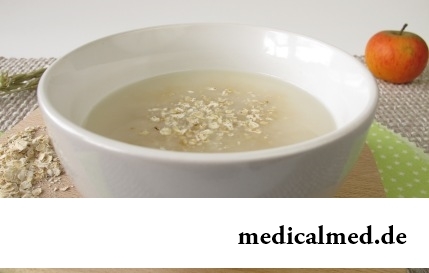
The main role in development of a peptic ulcer of a stomach and duodenum the bacterium Helikobakter plays pilor. Activity and the strengthened reproduction of this microorganism lead to weakening of protection of mucous membranes and their erosive damage. Manifestations not...
Section: Articles about health
During foot walks blood moves on vessels more actively and one and all bodies are supplied with a large amount of oxygen. It affects the state of health of the person very positively....
Section: Slideshow
All got used long ago that, having addressed the plastic surgeon, it is possible to modify natural parameters of a figure or to reduce...
Section: Articles about health
Modern footwear is extremely various. It stopped being only protection for legs long ago. Today shoes, boots, barefoot persons choose not so much proceeding from their convenience and functionality how many being guided by outward, brand and an opportunity to add with it...
Section: Articles about health
Good appetite was always considered as a sign of good health. The correct operation of the mechanism which is responsible for the need for nutrients and receiving pleasure from process of its satisfaction demonstrates that the organism functions without special deviations. On the other hand, appetite of the person is not a constant. It depends on the culture of food, flavoring addictions imparted since the childhood which can change during life, weather, mood and many д more than once...
Section: Articles about health
Scientists always aimed to offer fundamental explanations for medical problems. Their theories formed the basis of modern methods is treated...
Section: Articles about health
Each of us repeatedly noticed that the people having the same passport age are sometimes not similar on one-years at all. One at the age of 40-45 years already looks almost an old man, and another and in 60 is young, vigorous and full of life. The matter is that state нашег...
Section: Articles about health
Climax - process of fading of reproductive function of an organism in process of its aging. At women the main sign of its approach is the termination of a menstrual cycle. Officially the menopause is diagnosed when periods are not observed within 12 months. Age changes quite often are followed by emotional failures, disturbance of thermal control and sweating, dizzinesses and headaches, tachycardia and other unpleasant phenomena. This complex of symptoms...
Section: Articles about health
Is told about advantage of domestic animals for development of the child much. But many parents nevertheless do not hurry to bring pets as about...
Section: Articles about health
Such trouble as the milkwoman's attack, at least once in life happened almost to each woman. Prevalence of a disease is explained by the fact that the causative agent of an illness belongs to the so-called opportunistic microflora living on mucous an obol...
Section: Articles about health
Hemorrhoids – extremely widespread disease. Periodically arising inflammations and bleeding of hemorrhoidal nodes cause serious discomfort to nearly fifteen percent of adults. Meanwhile, having a clear idea of the reasons of an exacerbation of an illness and following rules of precaution, it is possible to reduce substantially sharpness of unpleasant feelings and to reduce progressing of a disease....
Section: Articles about health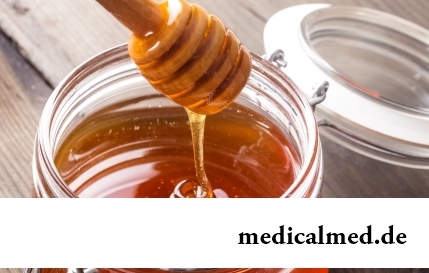
The trophic ulcer is not an independent disease. This heavy complication arising owing to a thermal injury (a burn...
Section: Articles about health
Practice of hypnotic impact on consciousness of the person contains about two millennia. During this time scientists managed to learn a lot of things about a phenomenon of hypnosis and learned to facilitate a condition of the patients having heavy illnesses with its help....
Section: Articles about health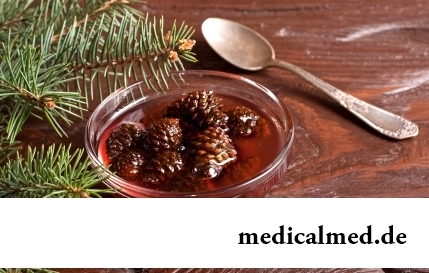
The pine is one of the most widespread plants of our woods. Its needles and pitch not without reason called by "gallipot" were since ancient times used for strengthening of protective forces of an organism, treatment of avitaminosis, anemia and many other diseases. In recent years wide popularity was gained by the national medicines prepared from pinecones. "Fruits" of a coniferous tree contain a huge amount of vitamins, biologically active agents, antioxidants, phytoncides and other useful to...
Section: Articles about health
The brain of the person is studied not one hundred years, but the quantity of the riddles connected with this body increases rather, than reducing...
Section: Articles about health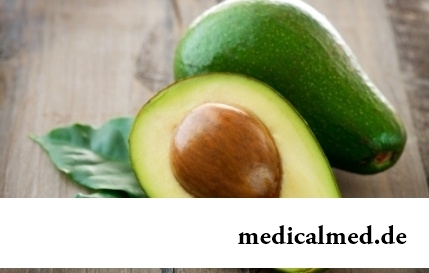
Life does not indulge the modern woman special emotional comfort and carelessness. The fatigue, troubles at work, misunderstanding in a family and various illnesses immediately affect a condition of hair and skin. And to look safe and attractive so хоч...
Section: Articles about health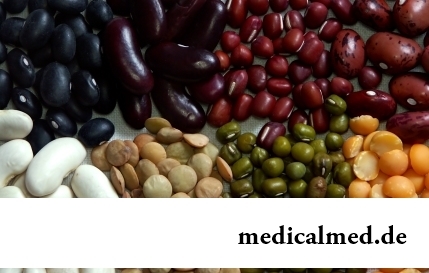
Ability of an organism to resist to adverse environmental factors (to impact of temperature drops, humidity and pressure, to the attacks of causative organisms, etc.) directly depends on what the person eats. Business here not only in that cells of a body received a necessary set of nutrients, vitamins and microelements. Scientists established that such components which are capable to influence negatively immune system, in connection with also are a part of foodstuff...
Section: Articles about health
